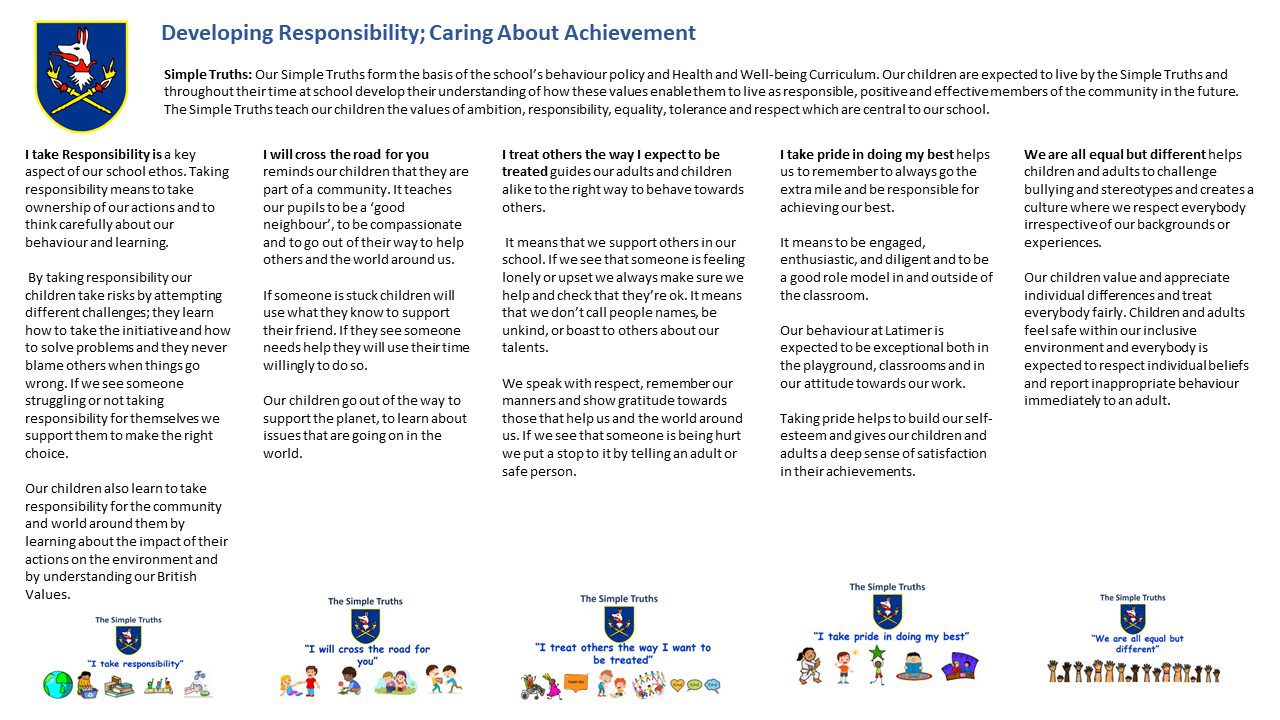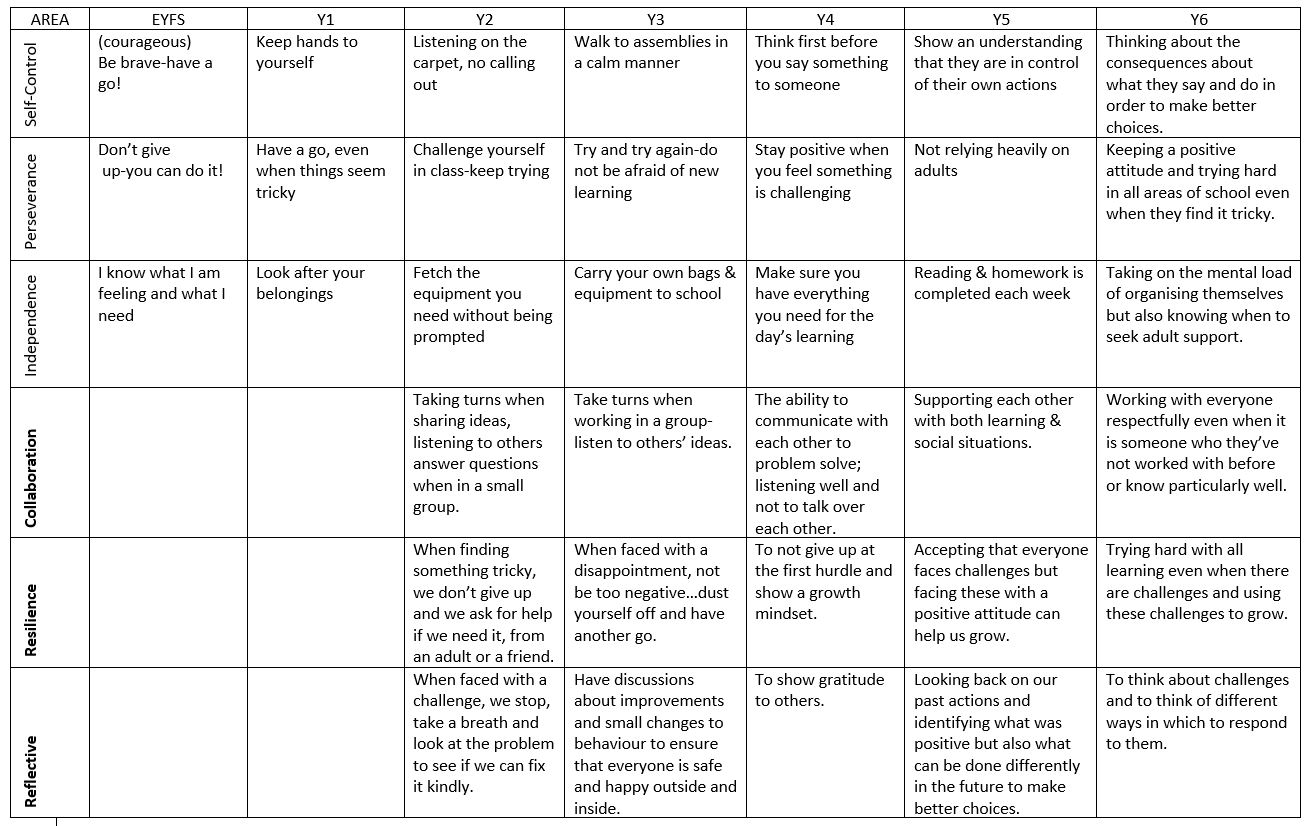Responsibility in and around the classroom
We actively encourage the children to think for themselves and to question others’ opinions and ideas. We ask the children to have their own voice, to speak about their ideas and to hear others in school-being a responsible listener and working as a team (collaboration) is just as important as being a responsible speaker!
Good behaviour and responsibility will always be positively rewarded.
A part of developing responsibility is about allowing the children to fail and to learn how to deal with this in a positive light. With failure comes an opportunity to show a great deal of responsibility-being responsible enough to pick yourself up, dust yourself off and to learn from mistakes and to carry on (perseverance, courage, resilience). By taking responsibility for our mistakes, we enable ourselves to make huge leaps and bounds both academically and socially.
Of course, it will not just be during lesson times when responsibility is encouraged.
The children will be expected to look after their physical learning environment, to look after each other and to show responsibility through self-control whilst enjoying their break times.
If mishaps occur, an emotional coaching approach will be used with three 3 key questions being discussed and reflected upon;
- What went wrong?
- Why did it happen?
- What will you do differently next time?
By developing honesty and responsibility outside the class, as well as in, the children will see that responsibility should be a part of every decision they make, not just whilst they are in the classroom.



